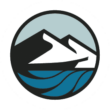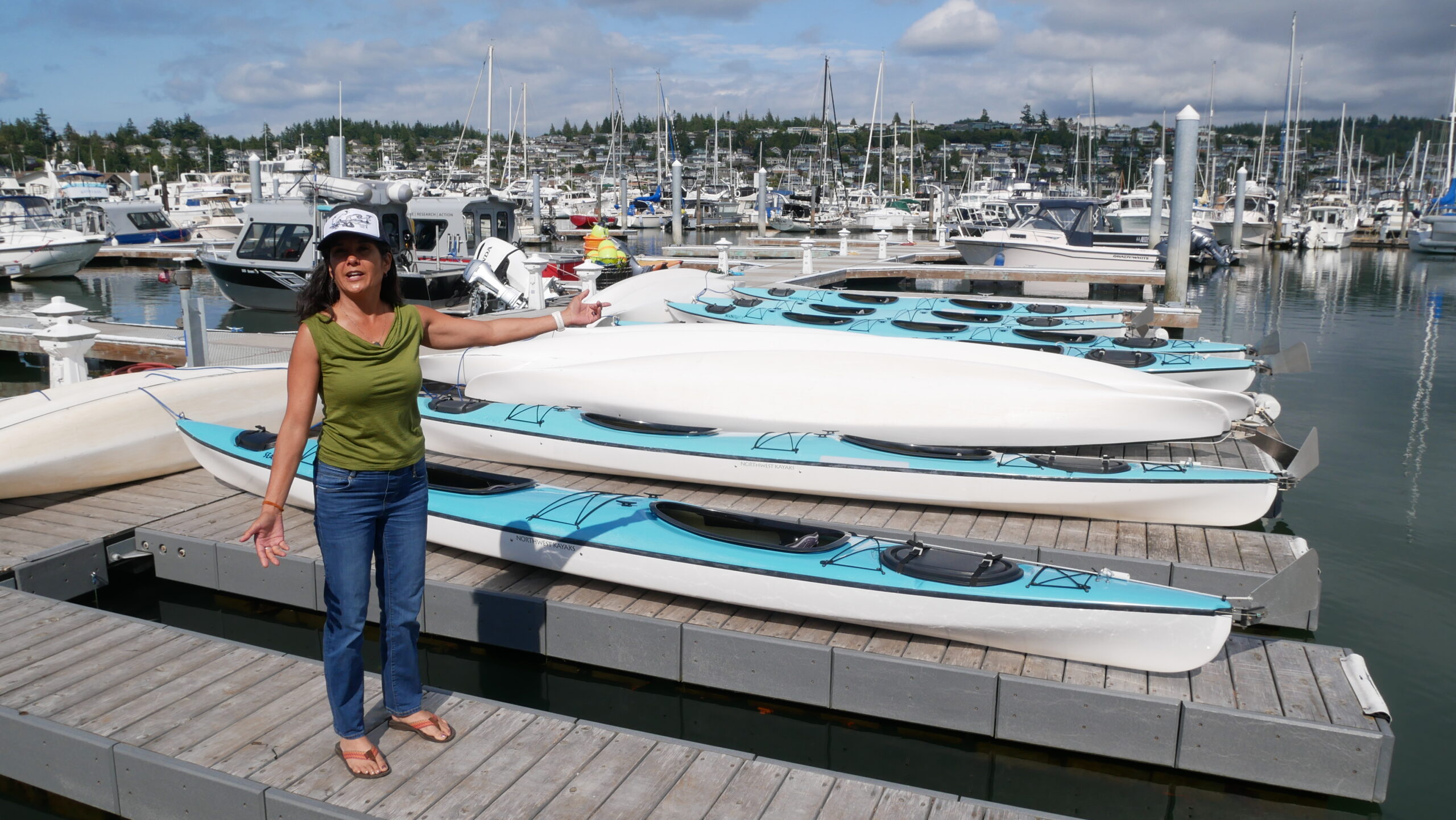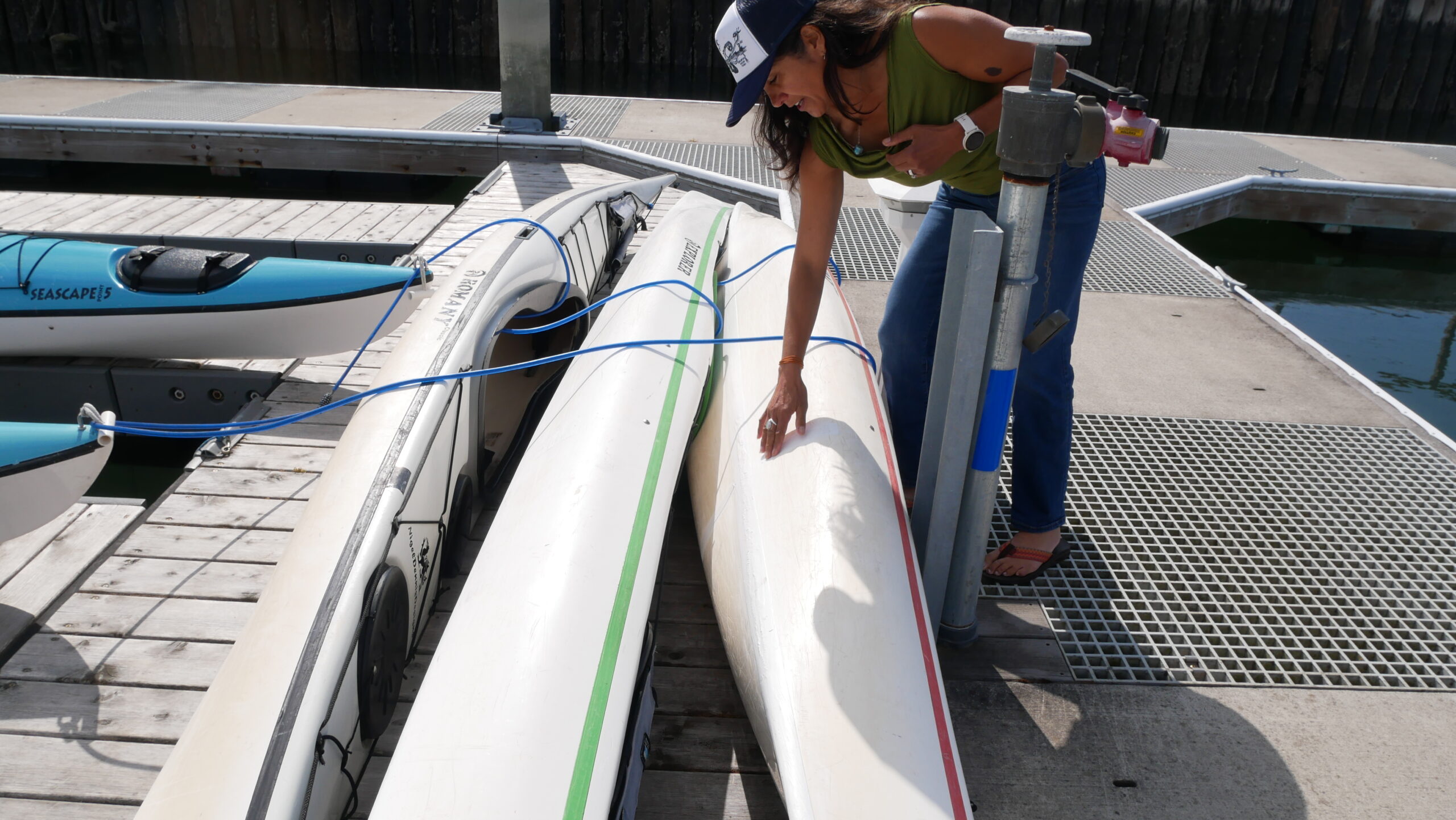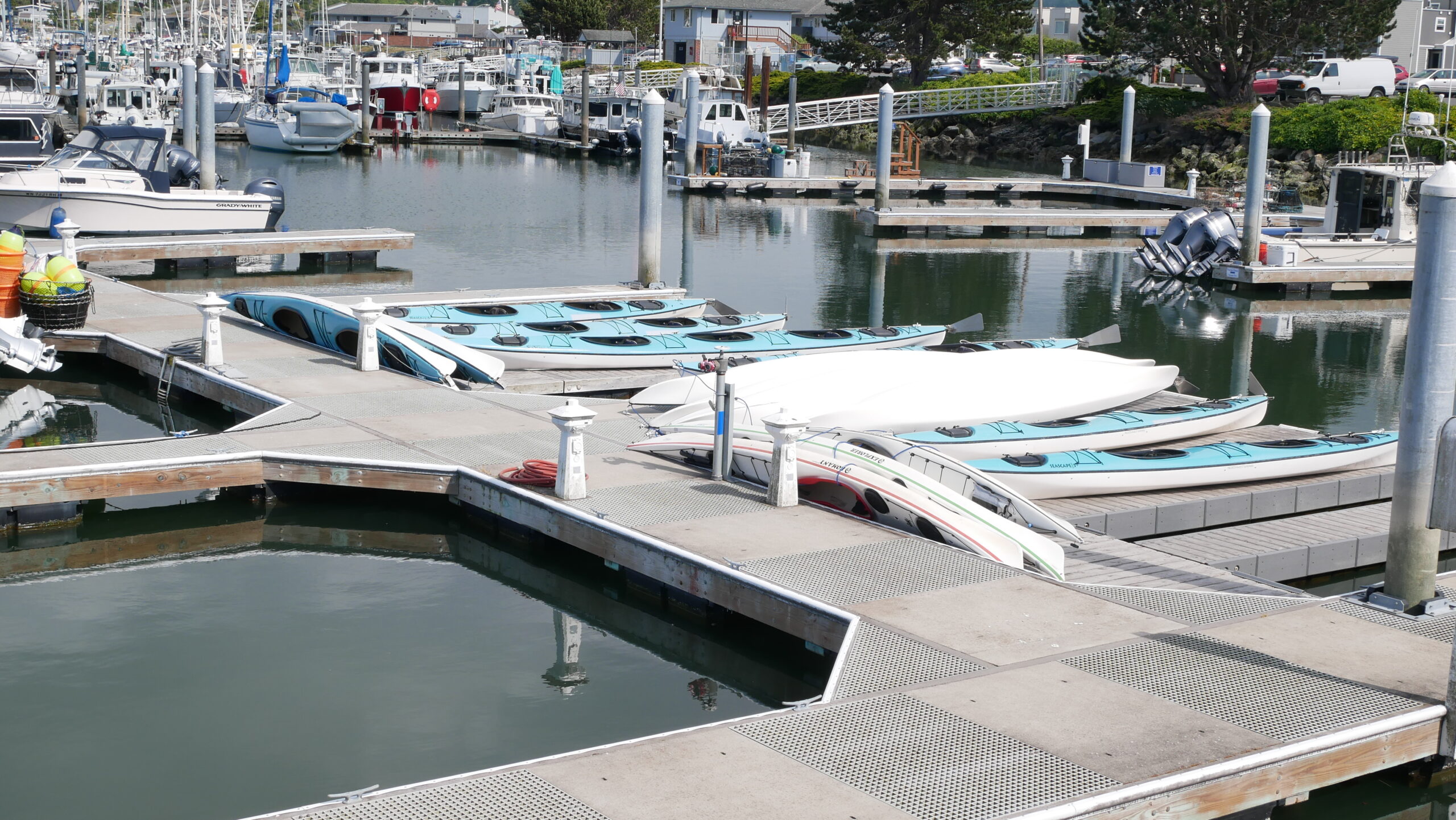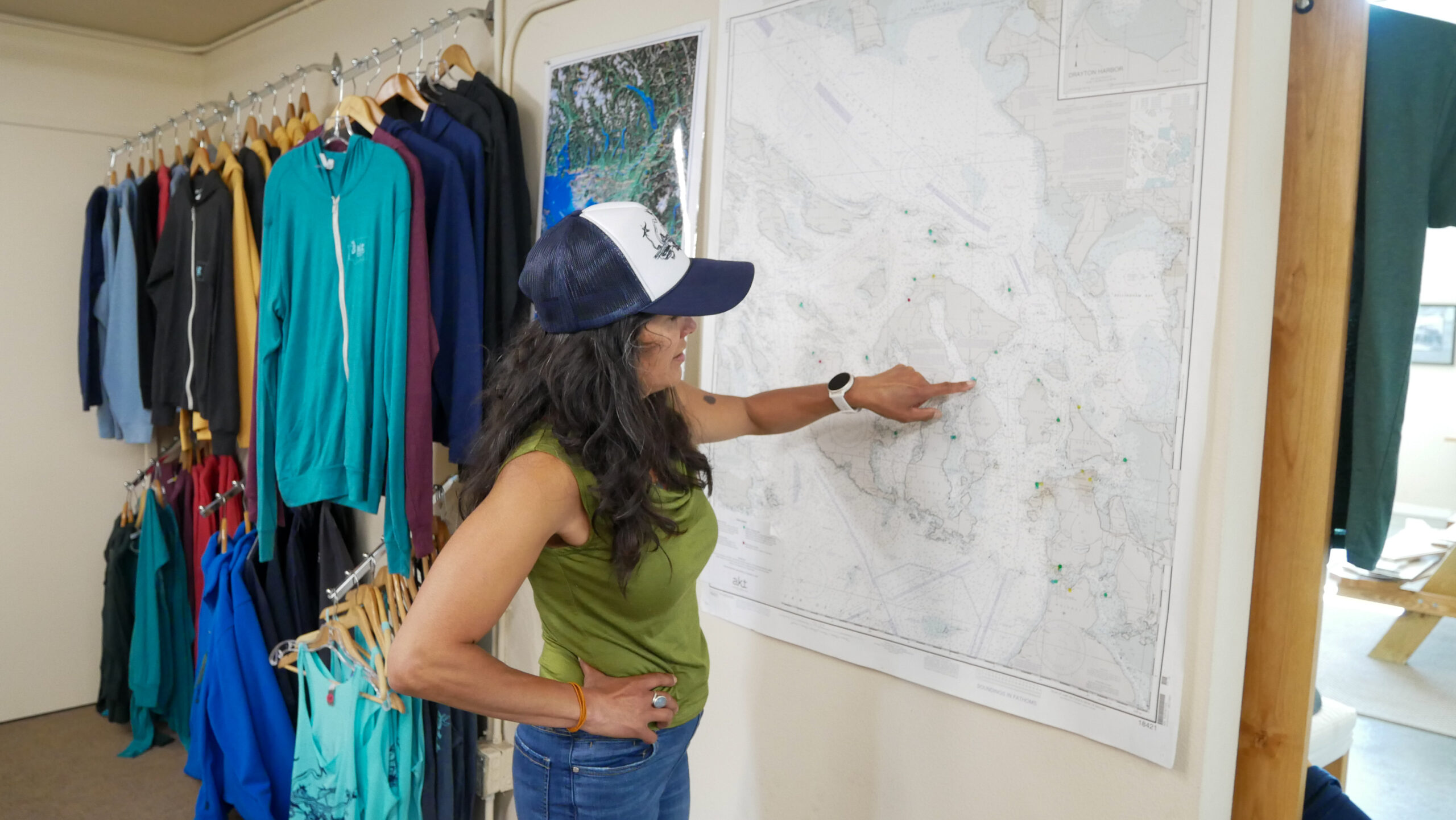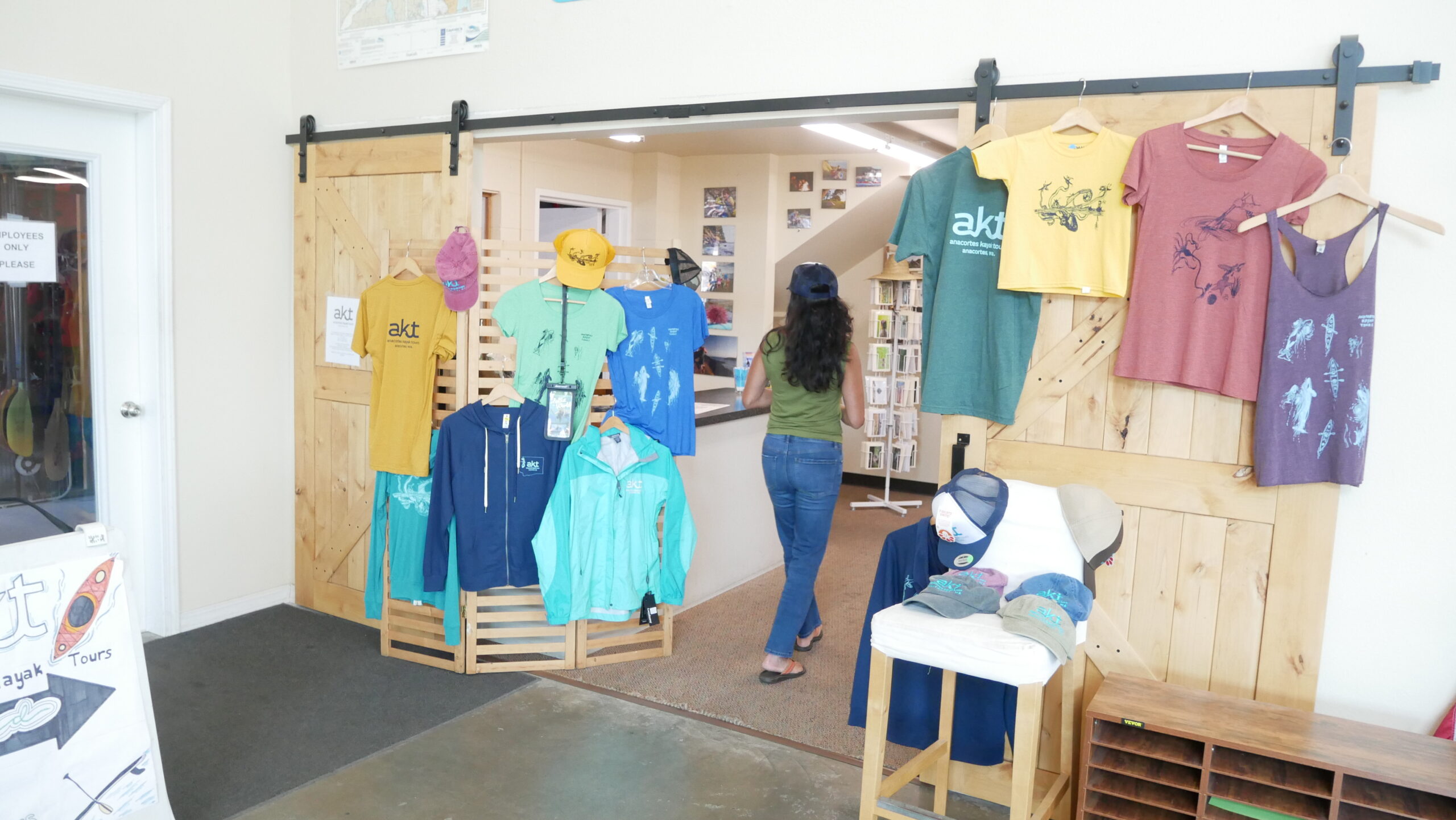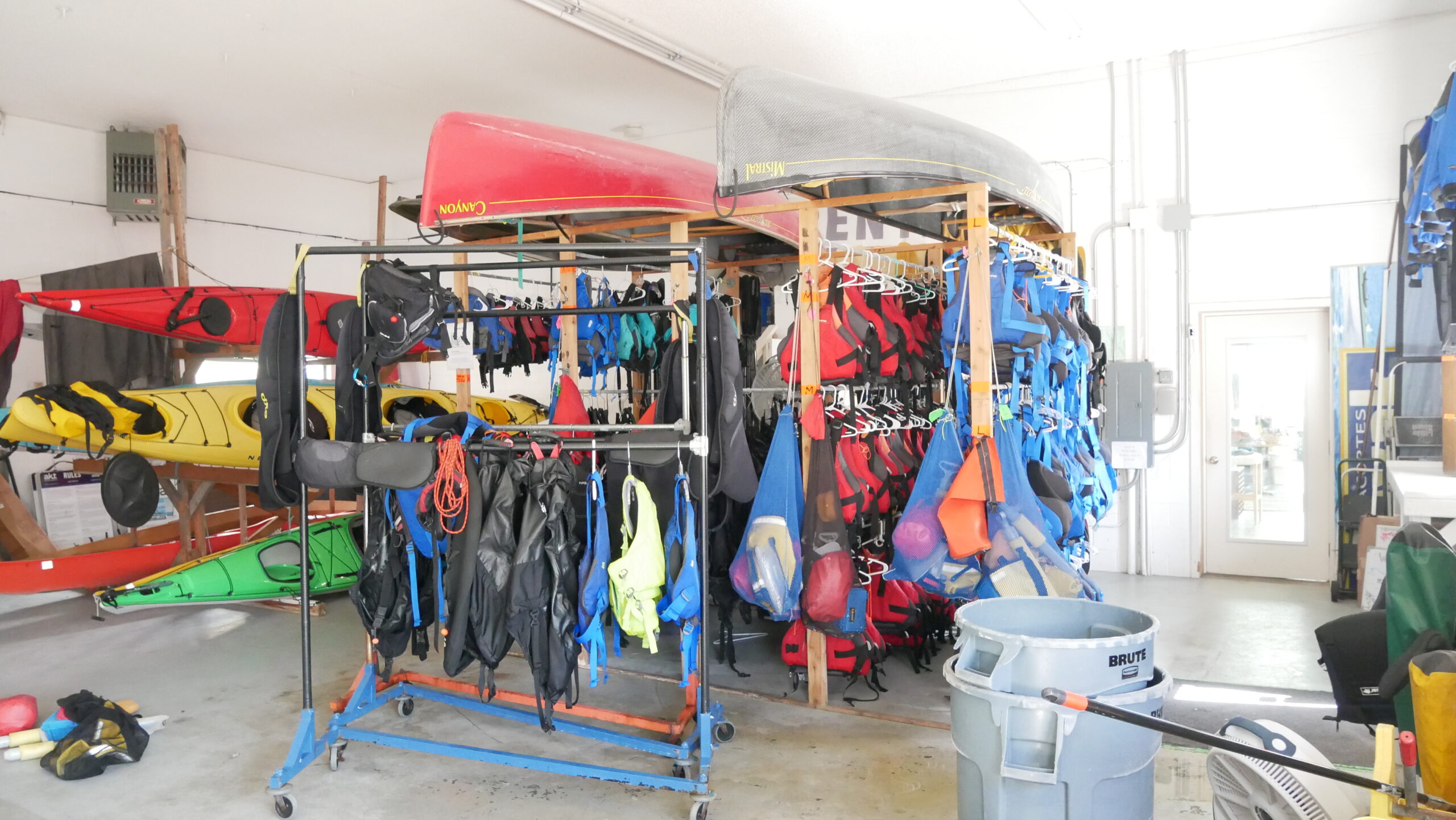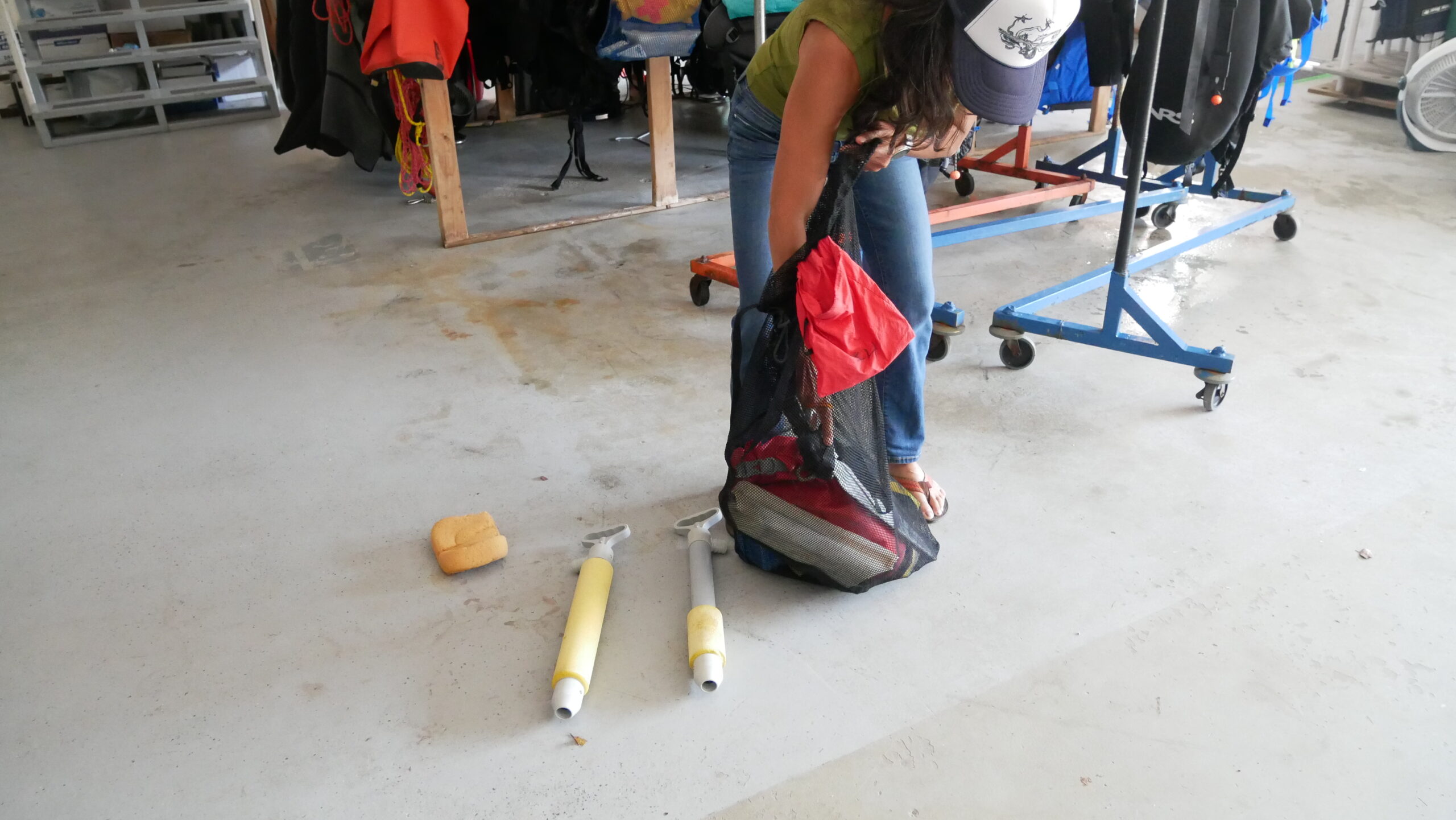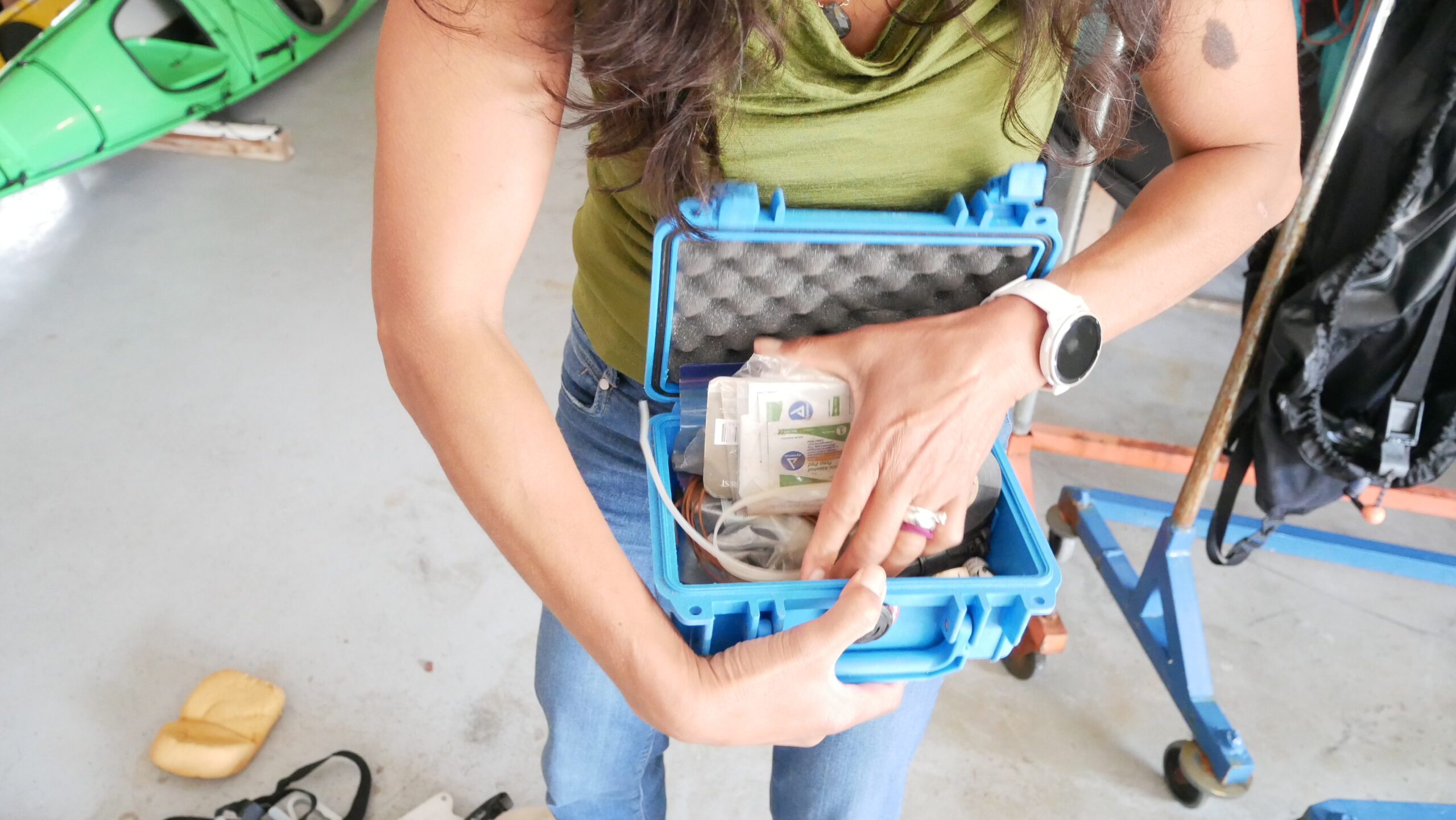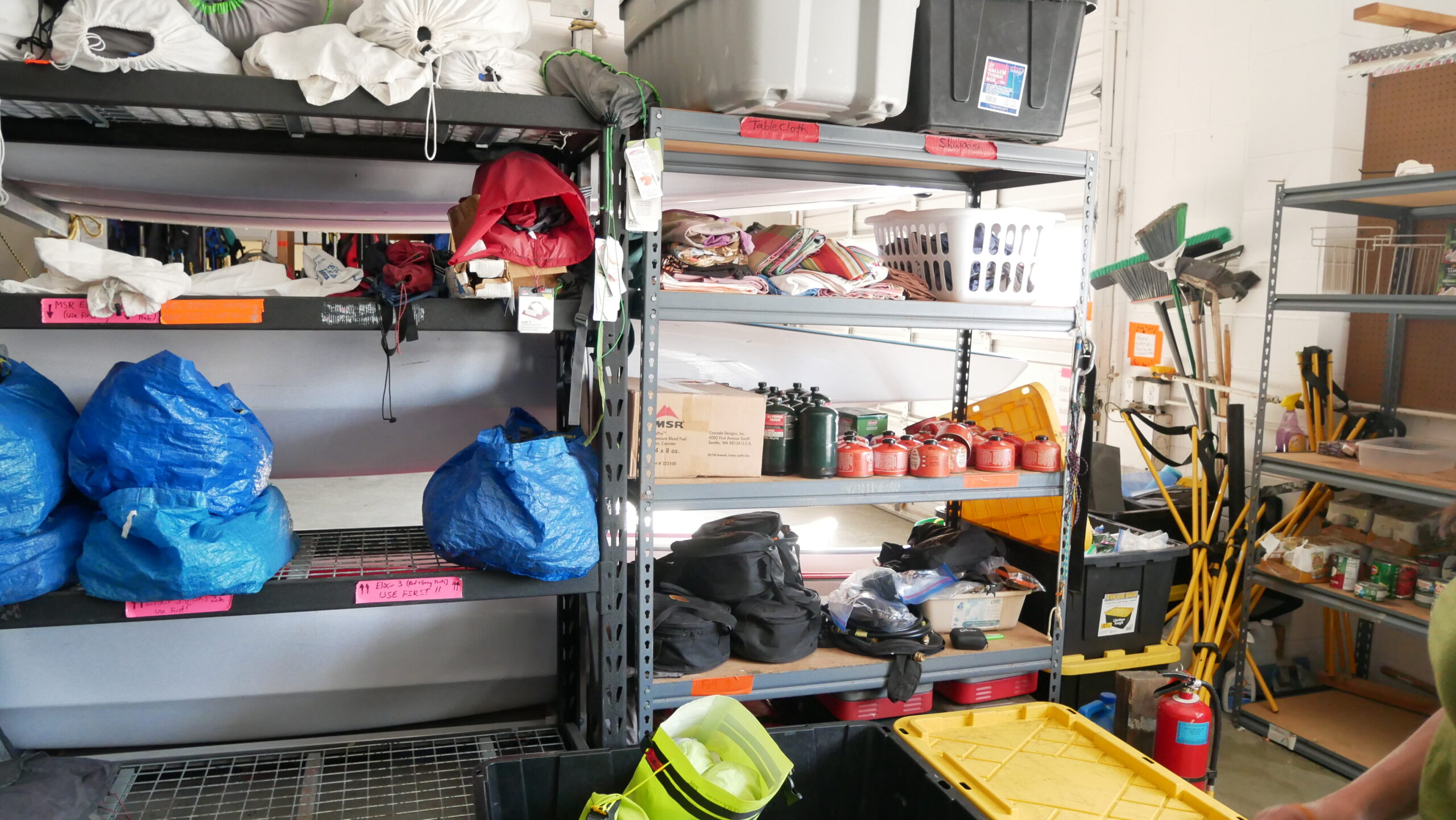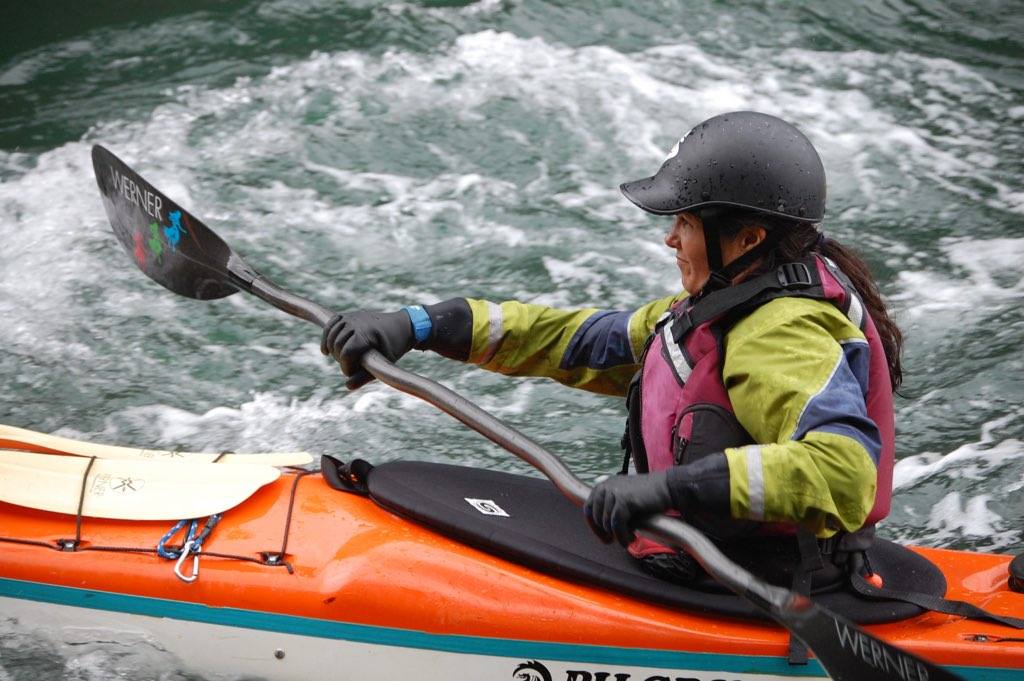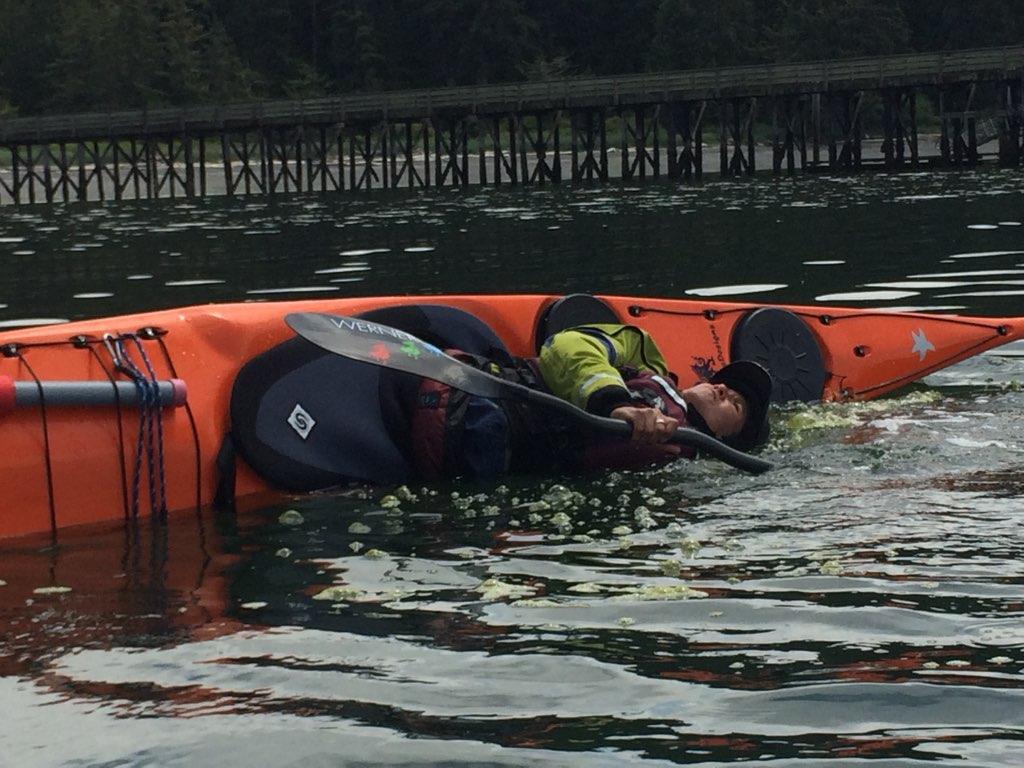Chapter Six of the Filipino’s and Washington’s Waterfront story exhibit, produced in collaboration with the Filipino American National Historical Society, also features Megan Schorr. Read the full exhibit online or in-person.
In the waterfront town of Anacortes, Megan Schorr is a co-owner of the small business Anacortes Kayak Tours. In 22 seasons of operation, she has carved out a successful enterprise curating maritime experiences for thousands of guests.
Megan’s journey on the water began as a naturalist aboard a whale watching vessel, helping to interpret the incredible flora and fauna of the San Juan archipelago and, of course, pointing out whales. In the Salish Sea, as Megan puts it, “everyone wants to see a whale.”
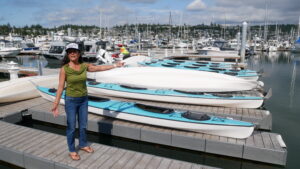
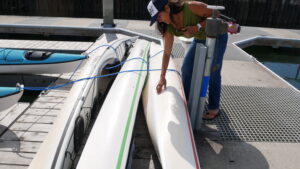
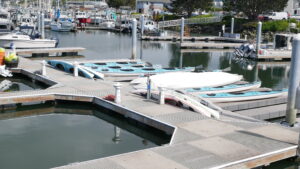
She met her husband, Erik, a boat captain, and they moved to San Juan Island to work aboard a wildlife tour vessel. After seven years of working for other companies, they decided to start their own business. Their idea was simple: capture the wildlife watching day-trip market from cities like Seattle and Vancouver, British Columbia, so their customers could avoid the ferry to the San Juan Islands. By 2003, they had settled on a plan: they would have their home base in Anacortes to avoid the ferry, and they would guide guests to wildlife and sights with sea kayaks rather than large vessels.
Starting a business from scratch, especially “when you’re poor,” as Megan candidly admits, was hard. When they started, they both led tours and coordinated the business. But as Anacortes Kayak Tours changed over 22 seasons, their company slowly built a stellar reputation and expanded in staff and programming. They have grown beyond Anacortes to include a second smaller kayak rental location at Deception Pass and now host multi-day trips to the San Juan Islands, guided by a team of well-trained and practiced paddlers from their home base in Anacortes.
“We just try to figure out new ways to make our business something that people want to do,” Megan explains. And, in Washington State, getting on the water is certainly something that people want to do.
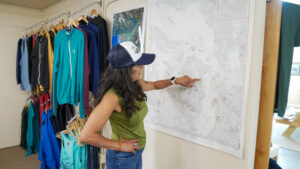
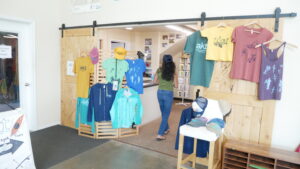
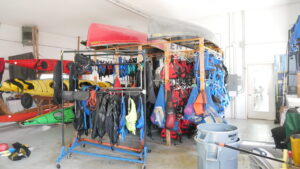
Over the years, Megan and Erik have found distinct roles within the business. While Erik manages the physical aspects like kayak repairs and on-the-water safety, Megan oversees the operations from her office and docks in Anacortes. “My role became sort of bossing everyone around, managing the office, dealing with the guests, calls, emails, and requests, dealing with the guides, managing the guides, kind of just keeping the whole system moving,” she said.
According to Megan, one of the most rewarding and challenging aspects of their business is the human element. Dealing with a diverse customer base, from international tourists to local families, requires immense patience. “Most people are perfectly happy,” Megan notes, “but on occasion, you get people who have expectations that cannot be met.” Her philosophy? Don’t take it personally. Megan shared a prime example from last year: a group booked a tour through a third-party service, then got into a car accident and missed their trip. Instead of canceling for a refund, they inexplicably left a one-star review. “So, then we just had to reply to them and say, ‘Why did you? We would give you your money back. You got in a car accident,’” Megan recounted, still clearly baffled.
Having well-trained guides who can connect their visitors with Washington’s maritime experiences is a cornerstone of their operation. At the start, learning to teach her staff was a new skill for Megan as well. Hiring and training reliable staff takes time, and because of the seasonal nature of guiding, employees rarely stick around long-term. Over the years, Megan has trained more than 200 guides, mostly young and seasonal employees. “When we first started our business, our guides were about the same age as us, maybe a little younger. Now they’re about the same age as our oldest kid,” says Megan. Most of her staff stay for between two and four years, working summers in late high school and early college.
“We attract adventurous people,” she says, people who “love to mountaineer or rock climb or sea kayak or whitewater.” Many of her staff spend the winter working as guides on Mt. Baker. Megan takes immense pride in witnessing her guides grow, learn, and even find love. Three couples who met while working for Anacortes Kayak Tours have since married!
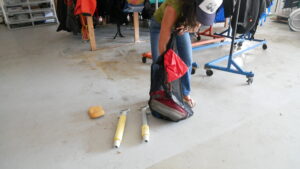
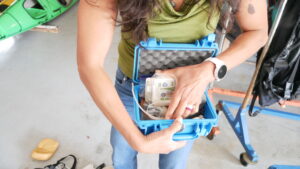
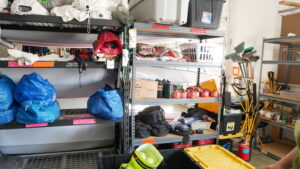
Much of the guides’ training takes place in the high currents of the narrow Deception Pass, ensuring that their guides can deal with some of the roughest waters in Washington State. Beyond physical kayaking skills, Megan encourages her guides to “go out and paddle and see what you love,” then, “come back with questions.” The training booklet Erik created for her staff, which she describes as “the Cliffs Notes to being a good guide,” identifies birds and wildlife, shares weather and wave patterns, and, of course, describes safety practices. Guides carry comprehensive safety kits including repair tools, first aid, and even spare clothing for guests in case of a capsize. The guides are not just tour leaders. They are mentors for the guests, fostering a learning atmosphere where guests can become skilled participants as well.
Hard work from May through September yields a unique work-life balance. “We make our money in July and August,” Megan shares. “Come the end of September, I say goodbye to all my guides. … Then it’s a lot of downtime for Erik and I … we call it seasonal retirement, and we love to travel.” They prioritize family time in the off-season, traveling the world with their two sons. She feels her sons have developed “dynamic personalities,” because of the business. Every season, they meet “a whole new group of young people … who are like mentors to them.”
Megan believes there’s a “disconnect with humanity and the natural world.” Her company aims to bridge that gap. “I’m all about exploration and adventure and creating memories and doing things out of your comfort zone. Those are the things that make you feel alive and make you feel good.” She understands that sea kayaking has a higher barrier to entry than larger vessels like whale watching boats, but she sees this as an opportunity to provide a more immersive and intimate experience with Washington’s waters.
“It never gets old to see whales from a kayak,” says Megan.
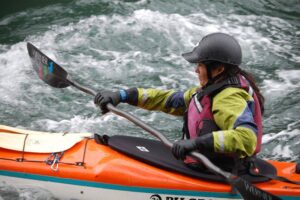
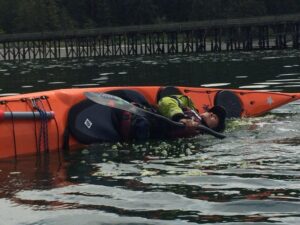

Want to find your way to explore Washington’s waters? Get on the Water near you. Read our other Women on the Waterfront stories to meet fisher poets, ferry pilots, orca advocates, and more.

